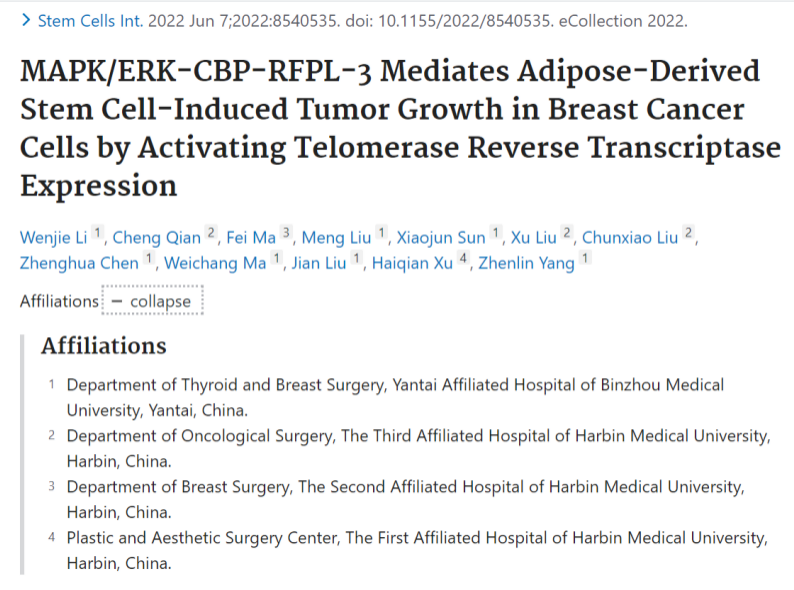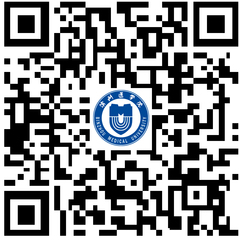Recently, Dr. Li Wenjie, from the Molecular Transformation Research Innovation Team of Breast Cancer Tumor in the Department of Thyroid and Breast Surgery of the Second School of Clinical Medicine (Yantai Affiliated Hospital of BMU), published online the research paper MAPK/ERK-CBP-RFPL-3 Mediates Adipose-Derived Stem Cell-Induced Tumor Growth in Breast Cancer Cells by Activating Telomerase Reverse Transcriptase Expression in Stem Cells International as the independent first author. Professor Yang Zhenlin, Chief Expert of Breast Surgery in the Second School of Clinical Medicine of BMU (Yantai Affiliated Hospital of BMU), is the co-corresponding author, and the Second School of Clinical Medicine (Yantai Affiliated Hospital of BMU) is the co-corresponding unit.

Adipogenic mesenchymal stem cells (ASCs), as the main component of tumor microenvironment, have attracted much attention because they can improve self-renewal and survival of adipogenic grafts in breast reconstruction after breast cancer. Preliminary results from this study suggest that C-Kit-positive ASCs promote breast cancer growth, but the exact mechanism is still unclear. In this study, as Cs-secreted stem cell factor (SCF) was found to trigger the activation of the MEK-ERK pathway in breast cancer cells, leading to intraconuclear aggregation of CREB binding protein (CBP), using anibody/inhibitor treated cells. As a coactivation transcription factor of human telomerase reverse transcriptase (hTERT), CBP anchors the hTERT promoter and upregulates telomerase activity under the synergistic action of Ret fingerlike protein-3 (RFPL-3). Conversely, CBP and RFPL-3 inhibit telomerase activity. HTERT transcriptional activation and proliferation promotion in breast cancer cells under the action of ASCs are ineffective.

This work provides a new perspective for the first time to demonstrate that C-Kit-positive mesenchymal stem cells in adipose tissue can activate telomere activity and regulate breast cancer cell proliferation through scF-PerK1/2-CBP-RFPL-3 /hTERT pathway, which can serve as a potential target, providing further theoretical basis for the prevention and treatment of breast cancer recurrence. The publication of this paper plays a positive role in strengthening discipline construction and improving ESI global ranking of our University.
This paper was supported by the Introduction Talents Research Fund of Yantai Affiliated Hospital of our University and the Medical and Health Science and Technology Development Plan of Shandong Province (No. 202104080969).
The original link: https://www.hindawi.com/journals/sci/2022/8540535/
SOURCE: The Second School of Clinical Medicine
BY: Li Wenjie





